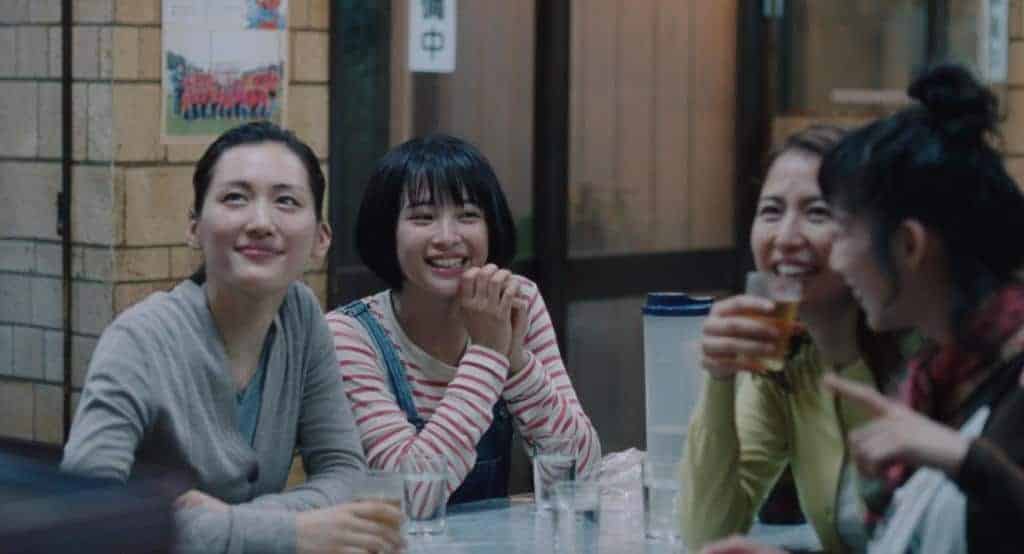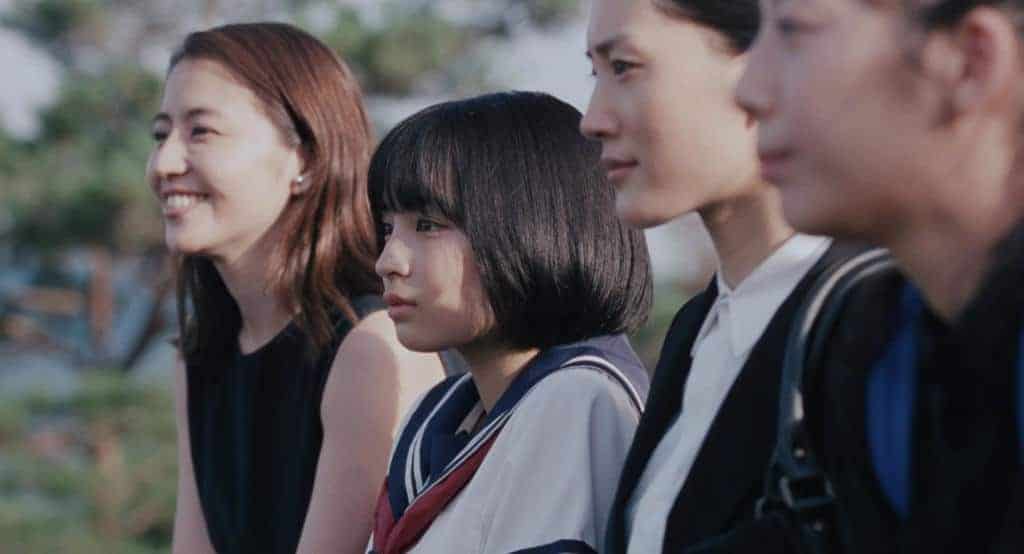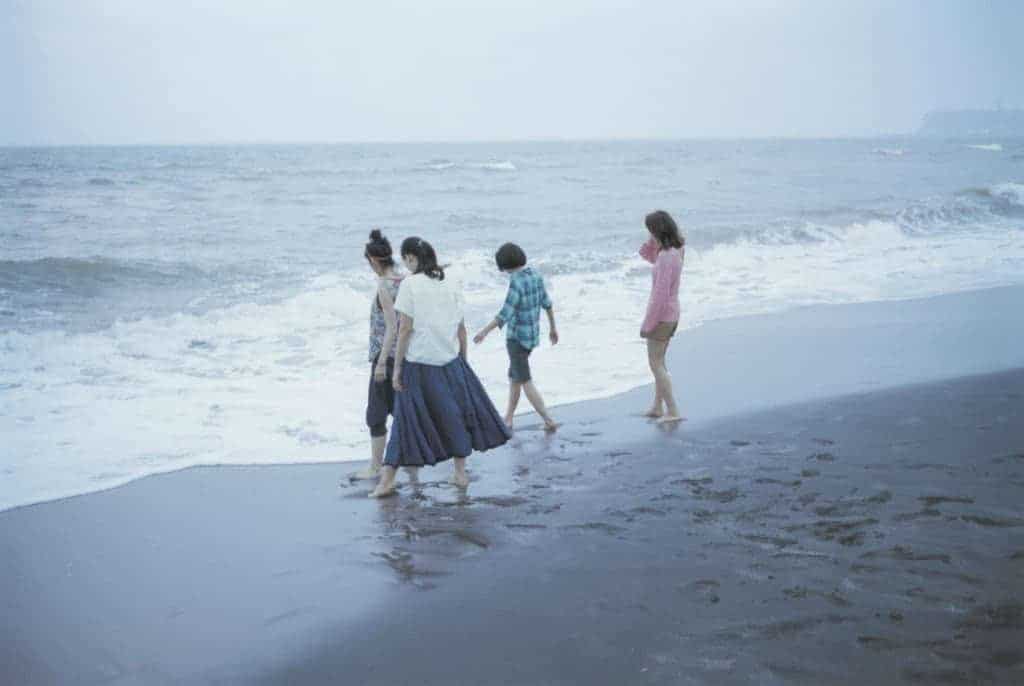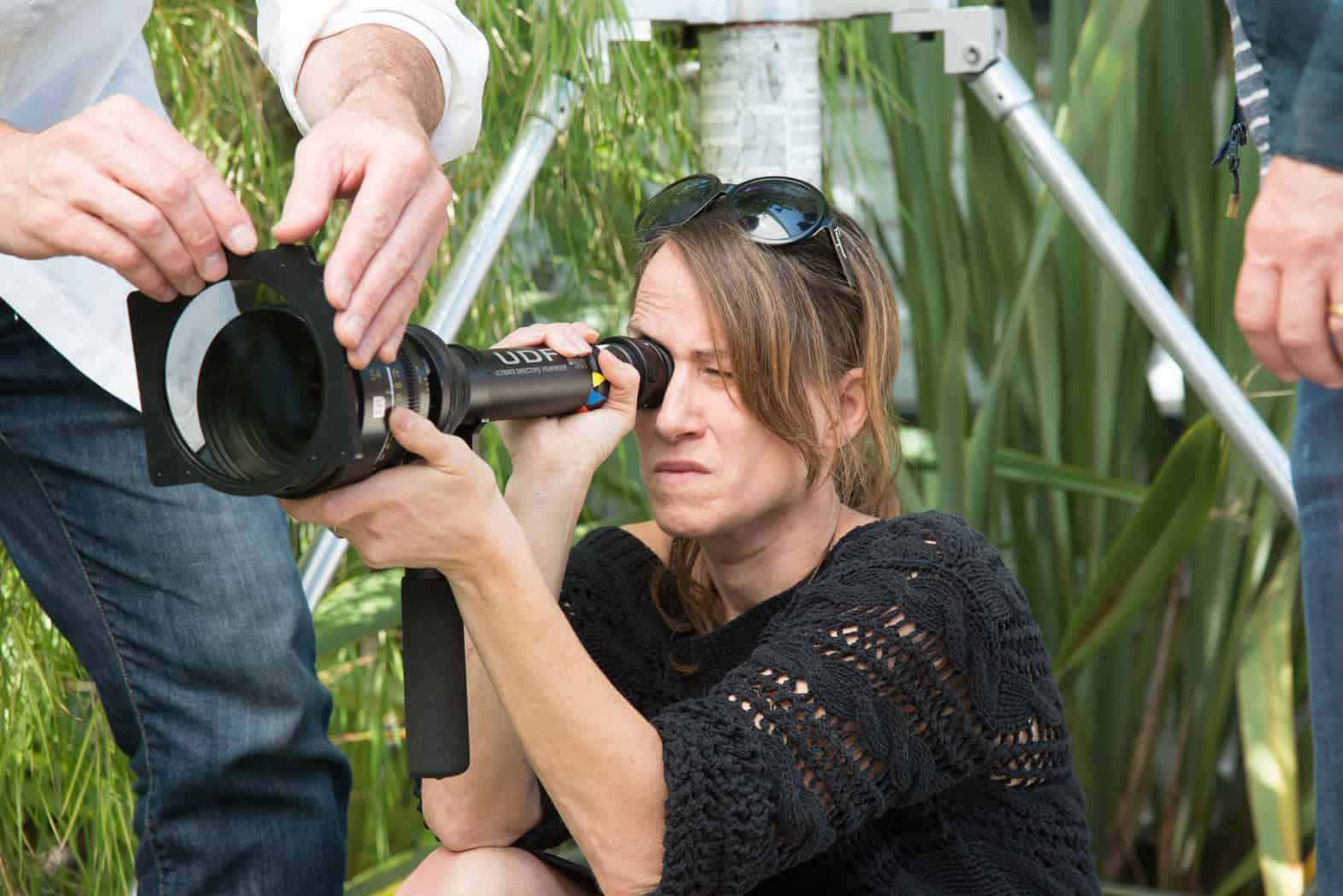
Of the three competition films I’ve seen thus far (Tale of Tales and Sea of Trees, I liked Our Little Sister best, a quiet, sweet, and heartbreaking film about three grown, co-habitating sisters, who meet their younger fourteen-year-old sister, Suzu (Suzu Hirose) after their absent father dies, and decide to take her in as one of their own. The tender scenes of female bonding are what’s likely to stand out to most people: these are smart, funny, and gutsy, open-hearted women, who love fully and easily. Their various adventures are charming, whether it’s making a feast, falling for boys, or struggling to not get too emotionally involved in their work.
But its chipper surface belies a darker underbelly, much like Unbreakable Kimmy Schmidt. It’s all in the eyes of the eldest, Sachi (Haruka Ayase), who instantly recognizes herself in Suzu, forced to grow up too soon, to be the adult for parents too immature to do so herself. As Suzu recounts stories of her childhood, Kore-eda shoots all of the sisters in one frame, showing us the the two middle sisters, Yoshiko (Masami Nagasawa) and Chika (Kaho), who listen with blissfully ignorant smiles, and a more serious Sachi who sees Suzu’s deeper pain.

There may be laughter and love between the sisters but some topics are taboo. The elephant in the room is that their father left the three sisters for Suzu’s mother, and Suzu feels that her presence alone must be a painful reminder to them. And when their father left, so, too, did their mother, leaving Sachi to pick up the slack. Sachi’s younger sisters think she’s too self-serious, unable to see that somebody needed to hold the family together and nobody was going to do it for Sachi. For a while, it’s only in moments with their friends and lovers that the women can be honest about how they feel about their relationship. But it’s through those friendships that they find a way to talk to each other, to share their pain, and find joy and comfort in one another from their shared history.

If you’re not watching closely, it would be easy to dismiss Our Little Sister as sentimental fluff, especially as there are a few too overtly sentimental statements toward the end. Stories of women coping with trauma, from The Hunger Games to Wild tend to get that treatment by default, but like the aforemented films, Our Little Sister has an unassuming wisdom beneath its winsome exterior. It’s raw and heartbreaking and real, and that’s commendable. Shooting the sisters all in one frame whenever possible, Kore-eda builds these women into a family onscreen, letting the space between them speak as much as their hugs and teasing. More lighthearted than I Wish, and with a touch of acknowledgment of the importance of blood ties that was the centre of Like Father, Like Son, this marks Kore-eda’s return to form.
This article has been edited to reflect the new English language title for the film, which is Our Little Sister. The article previously stated that the film’s title was Umimachi Diary, which is how it was referred to at the Cannes Film Festival in 2015.
Read more: Review: The politics of sisterhood in Mustang >>

